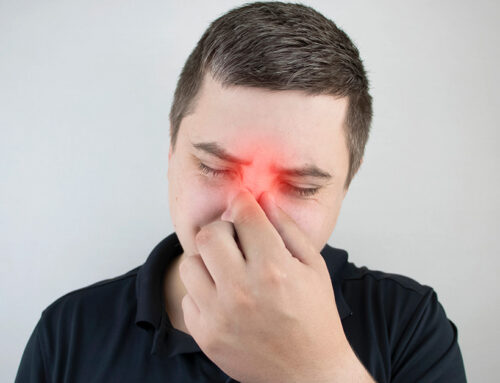
Post-nasal drip, a condition where excess mucus accumulates in the back of the throat, can be an annoying and persistent issue. Understanding the common causes of post-nasal drip can help you identify potential triggers and seek appropriate treatments. Here are some of the primary reasons behind this condition:
1.Normal nasal physiology
The glands in your nose and throat produce about one to two quarts of mucus every day, which is the equivalent of a large fast-food drink cup. This mucus is usually swallowed unconsciously throughout the day, but when it becomes thick or excessive, it can cause post-nasal drip.
1. Allergies
Allergies are one of the most common causes of post-nasal drip. When you’re exposed to allergens like pollen, dust mites, pet dander, or mold, your body produces more mucus to trap and expel these irritants. This excess mucus often ends up dripping down the back of your throat, leading to discomfort.
2. Infections
Respiratory infections such as the common cold, flu, or sinusitis can also cause post-nasal drip. These infections increase mucus production as part of your body’s defense mechanism. Sinus infections, in particular, can lead to thick, yellow or green mucus that drips down the throat.
3. Weather Changes
Dry air, especially during the winter months, can irritate your nasal passages and cause your body to produce more mucus to keep them moist. Sudden changes in weather or humidity levels can also trigger post-nasal drip in susceptible individuals.
4. Hormonal Changes
Hormonal fluctuations during pregnancy, menstruation, or as a result of using birth control pills can increase mucus production. This can lead to post-nasal drip and other related symptoms.
5. Certain Foods and Beverages
Some foods and drinks can contribute to post-nasal drip. Spicy foods, alcohol, and caffeine are known to stimulate mucus production. Additionally, dairy products can thicken mucus for some people, exacerbating the sensation of post-nasal drip.
6. Gastroesophageal Reflux Disease (GERD)
GERD, a condition where stomach acid flows back into the esophagus, can cause post-nasal drip. The acid irritates the throat and stimulates mucus production. People with GERD often experience symptoms like heartburn, a sour taste in the mouth, and chronic cough along with post-nasal drip.
7. Medications
Certain medications, including blood pressure drugs and birth control pills, can cause dry mouth and nose, leading to compensatory mucus production. Overuse of nasal decongestant sprays can also lead to rebound congestion, worsening post-nasal drip.
8. Structural Abnormalities
Structural issues within the nasal cavity, such as a deviated septum or nasal polyps, can obstruct normal mucus flow, leading to an accumulation of mucus that drips down the throat. These conditions often require medical intervention to correct.
9. Smoking and Air Pollutants
Cigarette smoke and environmental pollutants can irritate the nasal passages and increase mucus production. Smokers are particularly prone to chronic post-nasal drip due to the constant irritation of their respiratory tract.




